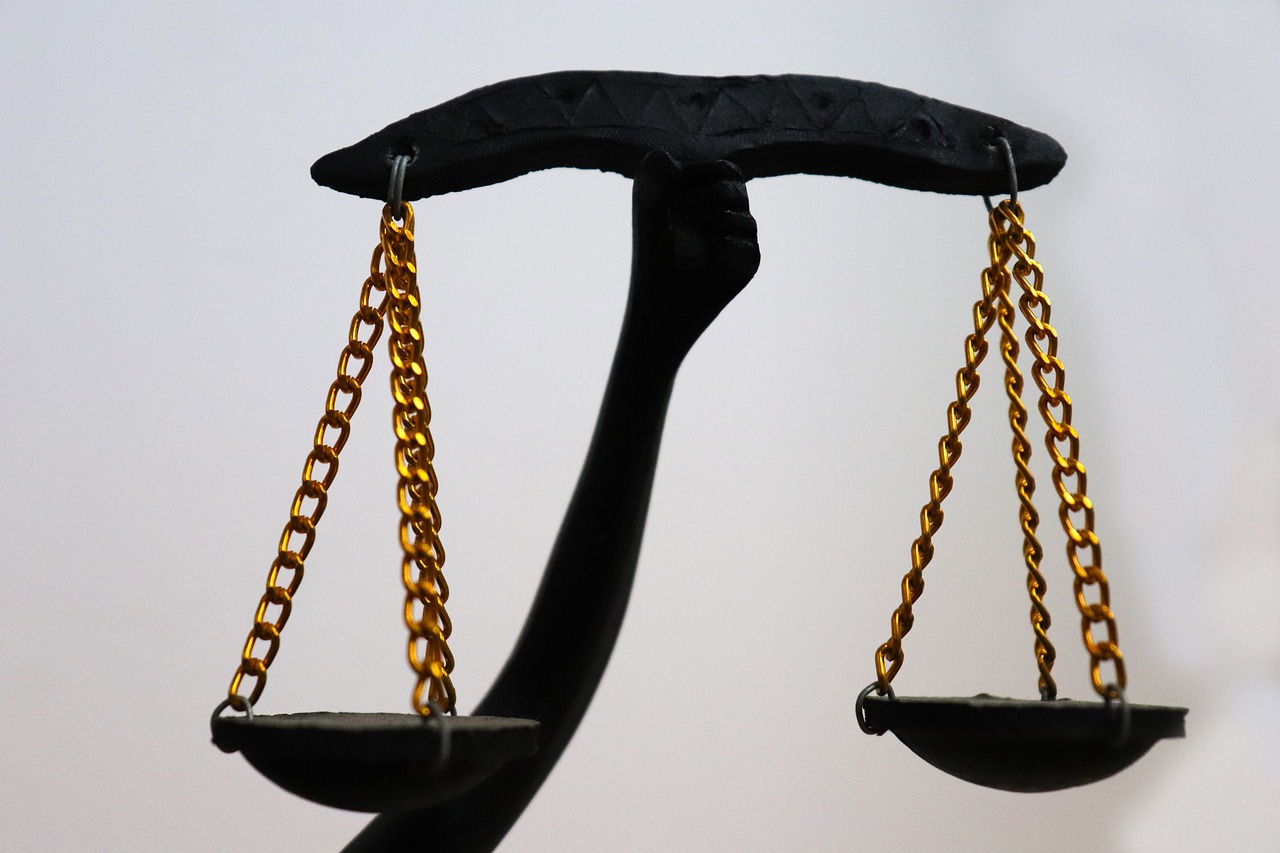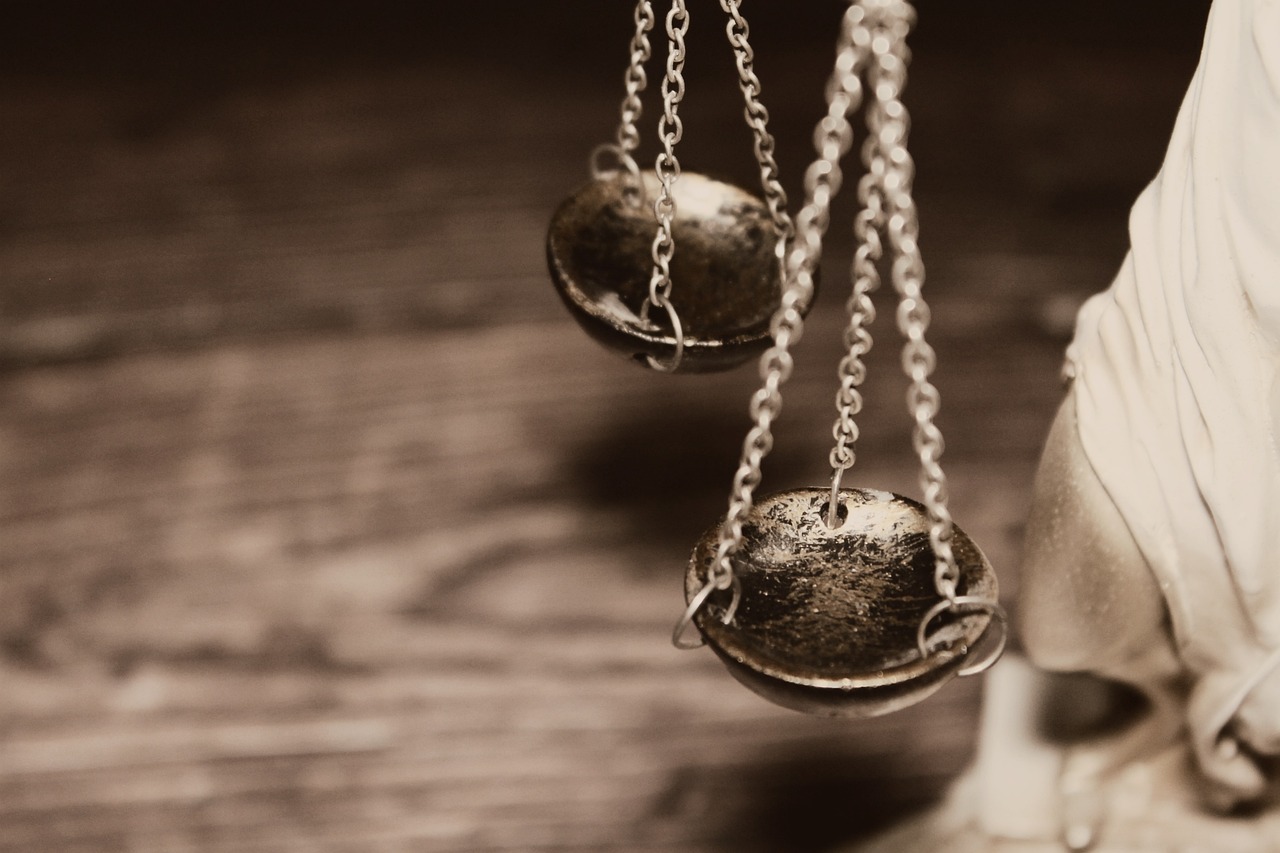
Zero Tolerance for Law Firm Malpractice
Law Firm Mal Practice” podcast delves into the intricate realm of legal ethics, examining cases of professional misconduct and negligence within law firms. Each episode dissects real-life scenarios, from breaches of client trust to mismanagement of cases, offering in-depth analysis and insights into the complexities of legal malpractice.
Hosted by seasoned legal experts and industry insiders, the podcast navigates through the nuances of ethical dilemmas, regulatory frameworks, and the consequences of malpractice. Whether you’re a legal professional, student, or simply intrigued by the legal world, “Law Firm Mal Practice” provides compelling narratives and valuable lessons on maintaining integrity and accountability in the legal profession.


Years of service


news and event
Stay updated on current affairs and happenings with our comprehensive coverage of news and events from around the world.
Car accidents are a distressing and often life-altering experience. Whether the crash is minor or severe, victims frequently face emotional trauma, physical injuries, and financial setbacks. In the nation’s capital, where traffic congestion and high vehicle density increase the likelihood of accidents, having the support of an experienced Washington D.C. car accident lawyer is not just helpful—it’s essential. A qualified attorney can guide you through the complex legal process and help secure the compensation you deserve.
A Washington D.C. car accident lawyer plays a critical role in ensuring that accident victims are not left to navigate the aftermath alone. Legal professionals in this field specialize in personal injury law, particularly cases involving vehicular accidents. They understand the nuances of local laws and are equipped to handle negotiations with insurance companies, medical providers, and opposing legal teams. With their help, victims can focus on recovery instead of being overwhelmed by paperwork and procedural issues.
One of the major challenges after a collision is dealing with insurance companies. While insurers may appear cooperative at first, they often work to minimize payouts or deny claims entirely. A Washington D.C. car accident lawyer can advocate on your behalf, ensuring your rights are protected and that you receive fair compensation. They are skilled in gathering evidence, consulting expert witnesses, and presenting a compelling case that holds negligent parties accountable.
Many victims are unaware of the full extent of damages they can claim. In addition to medical bills, lost wages, and vehicle repairs, there may be long-term costs such as ongoing treatment, reduced earning capacity, or emotional distress. A knowledgeable Washington D.C. car accident lawyer will conduct a thorough assessment of your situation and fight for comprehensive compensation that covers both current and future losses. Their expertise ensures that no element of your case is overlooked.
Time is a critical factor in any personal injury claim. In Washington D.C., there is a statute of limitations for filing a car accident lawsuit—typically three years from the date of the accident. Waiting too long can jeopardize your case and your chance at compensation. A prompt consultation with a Washington D.C. car accident lawyer ensures that deadlines are met and that your legal rights are preserved. Early legal intervention also improves the quality of evidence and witness testimonies.
Finding the right Washington D.C. car accident lawyer requires research and careful consideration. Start by looking for attorneys who specialize in personal injury or car accident cases. Check their credentials, track record, and client reviews. An experienced attorney will offer a free initial consultation to evaluate your case and outline the next steps. Choose someone who communicates clearly, demonstrates genuine concern for your well-being, and has a history of favorable settlements or trial outcomes.
Some people hesitate to hire a lawyer due to concerns about legal fees. However, most Washington D.C. car accident lawyers work on a contingency fee basis. This means you don’t pay any legal fees unless your case is won or settled. The fee is typically a percentage of your final compensation, making legal representation accessible even for those who are financially strained after an accident. This arrangement ensures that your attorney is motivated to achieve the best possible outcome for your case.
Communication is key when working with a Washington D.C. car accident lawyer. Your lawyer should keep you informed throughout every stage of the process, from filing claims to negotiating settlements and, if necessary, going to trial. They should answer your questions promptly and explain legal jargon in terms you can understand. Clear communication builds trust and ensures that your voice is heard throughout the legal journey.
In addition to legal skills, a compassionate approach makes a significant difference. A reputable Washington D.C. car accident lawyer understands the emotional toll a crash can take. They not only provide legal guidance but also offer support and reassurance during one of the most difficult periods of a person’s life. Their commitment to your well-being can turn a challenging situation into a manageable one, giving you the confidence to move forward.
Ultimately, hiring a Washington D.C. car accident lawyer can be the most important decision you make after a crash. From handling legal complexities to maximizing your compensation, an experienced attorney acts as your advocate and protector. If you’ve been involved in a car accident in the District of Columbia, don’t delay in seeking legal counsel. With the right lawyer by your side, you can rebuild your life and achieve the justice you deserve.
In the intricate world of U.S. immigration law, eb1a attorneys serve as essential guides for individuals seeking to obtain the EB1A visa, a category reserved for those with extraordinary ability in fields such as science, arts, education, business, or athletics. These legal professionals specialize in helping applicants navigate the complex requirements and documentation needed to prove their exceptional talents. Without the expertise of EB1A attorneys, many qualified candidates might find it difficult to assemble a compelling petition that meets the strict standards set by the U.S. Citizenship and Immigration Services (USCIS).
EB1A attorneys bring a wealth of knowledge and experience to the immigration process, ensuring that each application highlights the applicant’s achievements in a way that aligns with USCIS criteria. The EB1A visa requires extensive evidence of sustained national or international acclaim, and attorneys in this field understand the nuances of presenting awards, publications, memberships, and other documentation effectively. By working closely with clients, EB1A attorneys can tailor each petition to emphasize the strongest aspects of the applicant’s career, increasing the likelihood of approval.
One of the key benefits of consulting with EB1A attorneys is their ability to interpret the evolving policies and precedents that affect EB1A visa petitions. Immigration law is subject to frequent changes, and decisions on what constitutes extraordinary ability can vary. EB1A attorneys stay current with these developments, allowing them to advise clients on how best to position their case based on the latest trends and USCIS feedback. This proactive approach can save applicants significant time and resources by avoiding common pitfalls that lead to Requests for Evidence (RFEs) or denials.
The role of EB1A attorneys extends beyond paperwork preparation; they also offer strategic counsel on timing and eligibility. For many applicants, understanding when to file and how to document their qualifications can be as critical as the content of the application itself. EB1A attorneys evaluate the client’s professional history, recent accomplishments, and future plans to determine the optimal filing strategy. This level of personalized service ensures that the petition not only meets formal requirements but also presents a convincing narrative of extraordinary ability.
EB1A attorneys also help demystify the complex legal jargon and procedural steps involved in the EB1A visa application. Many applicants come from diverse professional backgrounds with little exposure to U.S. immigration law. Attorneys translate these complexities into clear guidance, explaining what evidence is necessary and how it should be organized. This clarity reduces applicant stress and improves the quality of submissions, which are critical factors in the competitive EB1A visa process.
Another important aspect of working with EB1A attorneys is their ability to prepare clients for potential challenges during the adjudication process. USCIS officers carefully scrutinize EB1A petitions, and sometimes additional documentation or clarification is requested. EB1A attorneys assist clients in responding effectively to RFEs by organizing supplementary evidence and crafting persuasive arguments that address any concerns. This responsiveness can make a significant difference in the outcome of the application.
In addition to their legal expertise, many EB1A attorneys have experience in specific industries or fields of talent, enabling them to better understand the unique qualifications of their clients. For example, an EB1A attorney familiar with academic research can help a scientist present their publications, citations, and research impact more compellingly. Similarly, an attorney experienced with artists or performers can advise on how to showcase critical acclaim and awards in a way that resonates with immigration officials. This specialized knowledge enhances the overall quality of the petition.
Cost considerations are also an important factor when seeking the services of EB1A attorneys. While some applicants may try to navigate the process independently, the risk of errors or incomplete applications often results in delays or denials that end up costing more in the long run. EB1A attorneys provide value by streamlining the process, avoiding common mistakes, and increasing the chances of approval on the first submission. Many attorneys offer initial consultations to assess eligibility and provide transparent fee structures, helping applicants make informed decisions about their investment.
Ultimately, the expertise of EB1A attorneys plays a crucial role in helping extraordinary individuals realize their American immigration goals. The EB1A visa offers a direct path to permanent residency without the need for employer sponsorship, making it highly desirable for top talent worldwide. By partnering with EB1A attorneys, applicants gain access to legal professionals who understand the high standards of proof required and how to present their accomplishments in the most persuasive way possible.
In conclusion, EB1A attorneys are invaluable resources for individuals pursuing the extraordinary ability visa. Their expertise in handling complex documentation, staying updated on immigration policy changes, and providing strategic legal counsel significantly enhances the chances of success. Whether you are a scientist, artist, entrepreneur, or athlete, engaging with knowledgeable EB1A attorneys can make the difference between navigating the process with confidence or facing avoidable hurdles along the way. For anyone considering an EB1A petition, investing in experienced legal representation is a wise decision that can open doors to new opportunities in the United States.
Getting pulled over and receiving a traffic ticket can be a stressful experience. Whether it’s a speeding citation, a red-light violation, or a more serious charge like reckless driving, the consequences can be far-reaching. For residents and commuters in Brooklyn, understanding your rights and having the right legal representation can make a significant difference. That’s where Brooklyn traffic lawyers come into the picture — professionals uniquely equipped to handle these cases in one of New York City’s busiest boroughs.

Brooklyn traffic lawyers specialize in helping clients navigate the complex legal system related to traffic violations. From minor infractions to major offenses, these legal experts understand the nuances of traffic law in New York and how local courts operate. They serve as both advocates and advisors, aiming to reduce fines, prevent points on your license, and avoid increases in insurance premiums.
One major advantage of hiring Brooklyn traffic lawyers is their familiarity with the various traffic courts in the borough. Brooklyn is home to some of the busiest roads and intersections in the city, which naturally leads to a high volume of traffic tickets issued daily. Experienced attorneys know the judges, clerks, and the procedural quirks of each court. This insider knowledge can be pivotal in achieving favorable outcomes for clients.
A common misconception is that paying a traffic ticket is the simplest and most efficient solution. However, what many fail to realize is that pleading guilty can result in a cascade of penalties. Brooklyn traffic lawyers often help clients contest tickets that may seem minor but carry hidden consequences, such as points that could lead to license suspension. They examine every detail of the case, from the accuracy of the ticket to how the stop was conducted, to build a strong defense.
The services offered by Brooklyn traffic lawyers go beyond just courtroom representation. Many of them provide free consultations to assess the severity of a ticket and the potential for dismissal or reduction. Some even offer remote consultations, making it easier for busy clients to get legal advice without taking time off work. This accessibility underscores their role as vital partners in protecting driving records and maintaining daily mobility.
In addition to individual motorists, Brooklyn traffic lawyers often represent commercial drivers whose livelihoods depend on a clean driving record. Truck drivers, delivery personnel, and rideshare operators can face devastating consequences from a single traffic offense. In these cases, the expertise of traffic lawyers becomes not just helpful but essential. They understand the stakes involved and fight aggressively to minimize the impact on a driver’s career.
For non-residents who receive traffic tickets while driving through Brooklyn, dealing with the court system can be particularly daunting. Brooklyn traffic lawyers provide critical support in these situations by handling appearances and negotiations on behalf of the client. This saves time and eliminates the need for multiple trips to court, reducing stress and logistical burdens for out-of-town drivers.
Another valuable service offered by Brooklyn traffic lawyers is their ability to negotiate with prosecutors for lesser charges or alternative penalties. In some cases, they can secure a deal that involves attending a defensive driving course in exchange for a ticket dismissal or reduced points. These kinds of outcomes are rarely possible without skilled legal representation, reinforcing the importance of having a knowledgeable advocate on your side.
The financial aspect is also worth considering. While hiring Brooklyn traffic lawyers does come with a cost, the investment often pays for itself. Avoiding hefty fines, rising insurance rates, and potential license suspension can save hundreds or even thousands of dollars in the long run. Moreover, many lawyers offer flat fees and transparent pricing, allowing clients to weigh the benefits against the cost with confidence.
Beyond financial and legal benefits, there’s also peace of mind. Facing a traffic violation alone can be nerve-wracking, especially if it’s your first time dealing with the court system. Brooklyn traffic lawyers provide clarity, reassurance, and strategic advice at every step. Their goal is not just to fight tickets, but to empower clients with knowledge about their rights and responsibilities as drivers in New York.
In conclusion, Brooklyn traffic lawyers play a critical role in safeguarding the driving privileges of residents and visitors alike. Their expertise, courtroom experience, and dedication to client success make them indispensable when confronting traffic violations. Whether you’re fighting a single ticket or dealing with multiple infractions, seeking the counsel of a seasoned attorney could mean the difference between a minor setback and a major legal headache. If you’re navigating the borough’s chaotic streets and find yourself on the wrong side of the law, remember that Brooklyn traffic lawyers are here to help you steer clear of trouble.
The legal profession stands as a bastion of justice and integrity, with attorneys entrusted to uphold the rule of law and protect their clients’ interests. However, amidst the complexities of legal practice, instances of malpractice can arise, casting shadows over the profession’s ethical standards. Law firm malpractice, characterized by negligent or unethical conduct, not only jeopardizes client trust but also undermines the foundations of the legal system. This article ventures into the intricate terrain of law firm malpractice, examining its root causes, far-reaching consequences, and the imperative need for preventive measures.
Understanding Law Firm Malpractice:
Law firm malpractice encompasses a spectrum of behaviors by legal practitioners that breach professional standards and result in harm or loss to clients. These behaviors may include:
1. Breach of Fiduciary Duty: Attorneys owe a fiduciary duty to act in the best interests of their clients. Breaching this duty through conflicts of interest, self-serving actions, or neglecting client welfare constitutes malpractice.
2. Incompetence or Negligence: Failure to perform legal duties with the requisite competence and diligence can lead to malpractice claims. This may involve inadequate legal research, missed deadlines, or substandard representation, resulting in adverse outcomes for clients.
3. Misrepresentation or Fraud: Deliberate misrepresentation of facts, fabrication of evidence, or misleading statements by attorneys can constitute malpractice, undermining the integrity of the legal process and causing harm to clients and other parties involved.
4. Conflict of Interest: Law firms must navigate complex ethical boundaries to avoid conflicts of interest that compromise their ability to represent clients effectively. Failure to disclose conflicts or representing conflicting interests can lead to malpractice allegations.
Consequences of Law Firm Malpractice:
The consequences of law firm malpractice reverberate across multiple dimensions, affecting clients, legal practitioners, and the broader legal community. For clients, malpractice can result in financial losses, adverse legal outcomes, and profound emotional distress. Trust in the legal system may erode, leading to skepticism and reluctance to seek legal assistance in the future.
Moreover, law firm malpractice tarnishes the reputation of the entire legal profession. Instances of malpractice undermine public confidence in the integrity and ethics of attorneys, potentially deterring individuals from seeking justice through legal channels. This erosion of trust not only impacts the malpracticing firm but also has cascading effects throughout the legal community.
Legal practitioners implicated in malpractice face professional and personal repercussions. In addition to potential disciplinary actions by state bar associations, such as license suspension or revocation, lawyers may experience irreparable damage to their professional reputation. Rebuilding trust and credibility after being associated with malpractice can be a daunting endeavor, impacting career trajectories and personal well-being.
Prevention Strategies:
Preventing law firm malpractice demands a proactive and comprehensive approach, encompassing ethical standards, risk management protocols, and ongoing professional development. Here are some strategies to mitigate the risk of malpractice:
1. Adherence to Ethical Guidelines: Law firms must prioritize adherence to the highest ethical standards, including integrity, honesty, and client confidentiality. Establishing clear ethical guidelines and providing regular training and oversight can help ensure compliance and prevent inadvertent violations.
2. Competence and Due Diligence: Attorneys must maintain competence in their respective areas of practice and exercise due diligence in representing clients. This includes staying abreast of legal developments, conducting thorough research, and seeking assistance or collaboration when facing unfamiliar or complex matters.
3. Conflict Checking Mechanisms: Implementing robust conflict checking mechanisms is essential to identifying and addressing conflicts of interest promptly. Utilizing technology solutions and maintaining comprehensive conflict databases can help law firms navigate ethical dilemmas and avoid malpractice allegations.
4. Communication and Transparency: Open communication with clients regarding case developments, potential risks, and legal strategies fosters trust and reduces the likelihood of misunderstandings or disputes. Lawyers should provide clear and transparent explanations of legal processes and decisions, empowering clients to make informed choices.
5. Continuous Improvement: Embracing a culture of continuous improvement enables law firms to adapt to evolving legal landscapes and emerging risks. Regularly reviewing and updating internal policies, procedures, and training programs ensures that attorneys remain vigilant against malpractice pitfalls.
Conclusion:
Law firm malpractice poses significant challenges to the legal profession, threatening client trust, professional integrity, and the credibility of the legal system. By understanding the root causes of malpractice and implementing proactive prevention strategies, law firms can mitigate risks and uphold the highest standards of ethical conduct and professionalism. Ultimately, fostering a culture of accountability, transparency, and continuous improvement is paramount to safeguarding the interests of clients and preserving the integrity of the legal profession.
In the complex and often high-stakes world of legal practice, the trust between clients and their attorneys is paramount. However, despite the rigorous training and ethical standards within the legal profession, instances of malpractice can occur, posing significant risks to both clients and practitioners alike. Law firm malpractice, characterized by negligent or unethical conduct, can have far-reaching consequences, ranging from financial loss to reputational damage. This article examines the nuances of law firm malpractice, delving into its causes, implications, and strategies for prevention.
Understanding Law Firm Malpractice:
Law firm malpractice encompasses a wide array of unethical or negligent behaviors by legal practitioners that result in harm or loss to their clients. These malpractices can manifest in various forms, including:
1. Breach of Fiduciary Duty: Attorneys are bound by a fiduciary duty to act in the best interests of their clients. Breaching this duty through conflicts of interest, self-serving actions, or prioritizing personal gain over client welfare constitutes malpractice.
2. Incompetence or Negligence: Failure to exercise the level of competence and diligence expected of a reasonable attorney can lead to malpractice claims. This may involve inadequate legal research, missed deadlines, or substandard representation, resulting in adverse outcomes for the client.
3. Misrepresentation or Fraud: Deliberate misrepresentation of facts, fabrication of evidence, or misleading statements by attorneys can constitute malpractice, undermining the integrity of the legal process and causing harm to clients and other parties involved.
4. Conflict of Interest: Law firms must navigate complex ethical boundaries to avoid conflicts of interest that compromise their ability to represent clients effectively. Failure to disclose conflicts or representing conflicting interests can lead to malpractice allegations.
Consequences of Law Firm Malpractice:
The consequences of law firm malpractice can be severe and multifaceted, impacting clients, legal practitioners, and the broader legal community. For clients, experiencing malpractice can result in financial losses, adverse legal outcomes, and emotional distress. Trust in the legal system may be eroded, leading to disillusionment and reluctance to seek legal assistance in the future.
Moreover, law firm malpractice tarnishes the reputation of the entire legal profession. Instances of malpractice undermine public confidence in the integrity and ethics of attorneys, potentially deterring individuals from seeking legal recourse when needed. This erosion of trust not only affects the malpracticing firm but also has ripple effects throughout the legal community.
Legal practitioners implicated in malpractice face professional and personal repercussions. In addition to potential disciplinary actions by state bar associations, such as license suspension or revocation, lawyers may suffer irreparable damage to their professional reputation. Rebuilding trust and credibility after being associated with malpractice can be a formidable challenge, impacting career prospects and personal well-being.
Prevention Strategies:
Preventing law firm malpractice requires a proactive and multifaceted approach that encompasses ethical standards, risk management protocols, and ongoing professional development. Here are some strategies to mitigate the risk of malpractice:
1. Adherence to Ethical Guidelines: Law firms must prioritize adherence to the highest ethical standards, including integrity, honesty, and client confidentiality. Establishing clear ethical guidelines and providing regular training and oversight can help ensure compliance and prevent inadvertent violations.
2. Competence and Due Diligence: Attorneys must maintain competence in their respective areas of practice and exercise due diligence in representing clients. This includes staying abreast of legal developments, conducting thorough research, and seeking assistance or collaboration when facing unfamiliar or complex matters.
3. Conflict Checking Mechanisms: Implementing robust conflict checking mechanisms is essential to identifying and addressing conflicts of interest promptly. Utilizing technology solutions and maintaining comprehensive conflict databases can help law firms navigate ethical dilemmas and avoid malpractice allegations.
4. Communication and Transparency: Open communication with clients regarding case developments, potential risks, and legal strategies fosters trust and reduces the likelihood of misunderstandings or disputes. Lawyers should provide clear and transparent explanations of legal processes and decisions, empowering clients to make informed choices.
5. Continuous Improvement: Embracing a culture of continuous improvement enables law firms to adapt to evolving legal landscapes and emerging risks. Regularly reviewing and updating internal policies, procedures, and training programs ensures that attorneys remain vigilant against malpractice pitfalls.
Conclusion:
Law firm malpractice poses significant challenges to the legal profession, threatening client trust, professional integrity, and the credibility of the legal system. By understanding the root causes of malpractice and implementing proactive prevention strategies, law firms can mitigate risks and uphold the highest standards of ethical conduct and professionalism. Ultimately, fostering a culture of accountability, transparency, and continuous improvement is essential to safeguarding the interests of clients and preserving the integrity of the legal profession.
In the realm of legal practice, the trust between a client and their attorney is sacrosanct. However, despite the ethical standards and rigorous training within the legal profession, instances of malpractice can occur, casting shadows over the integrity of law firms. Law firm malpractice, characterized by negligent or unethical conduct, not only undermines the trust essential for the legal system but also imposes severe consequences on both clients and practitioners. This article delves into the intricacies of law firm malpractice, exploring its implications, causes, and preventive measures.
Understanding Law Firm Malpractice:
Law firm malpractice encompasses a spectrum of unethical or negligent behaviors by legal practitioners that result in harm or loss to their clients. These malpractices can manifest in various forms, including but not limited to:
1. Breach of Fiduciary Duty: Lawyers owe a fiduciary duty to their clients, requiring them to act in the client’s best interest. Breaching this duty through conflicts of interest, self-dealing, or prioritizing personal gains over client welfare constitutes malpractice.
2. Incompetence or Negligence: Failure to perform legal duties with the level of competence and diligence expected of a reasonable attorney can lead to malpractice claims. This may involve inadequate research, missed deadlines, or substandard representation, resulting in adverse outcomes for the client.
3. Misrepresentation or Fraud: Deliberate misrepresentation of facts, fabrication of evidence, or misleading statements by attorneys can constitute malpractice, undermining the integrity of the legal system and causing harm to clients and other parties involved.
4. Conflict of Interest: Law firms must navigate complex ethical boundaries to avoid conflicts of interest that compromise their ability to represent clients effectively. Failure to disclose conflicts or representing conflicting interests can lead to malpractice allegations.
Consequences of Law Firm Malpractice:
The repercussions of law firm malpractice extend far beyond financial losses or legal sanctions. For clients, experiencing malpractice can shatter trust in the legal system and inflict significant emotional distress. Financial ramifications, including loss of assets or settlements, can exacerbate the already stressful situation, leaving clients disillusioned and seeking recourse.
Moreover, law firm malpractice tarnishes the reputation of the entire legal profession. Public perception of attorneys as guardians of justice diminishes when instances of malpractice come to light. This erosion of trust not only affects the malpracticing firm but also undermines confidence in the legal system as a whole, potentially deterring individuals from seeking legal assistance when needed.
Legal practitioners implicated in malpractice face professional and personal consequences. Aside from potential disciplinary actions by state bar associations, including license suspension or revocation, lawyers may suffer irreparable damage to their professional reputation. Rebuilding trust and credibility after being associated with malpractice can be a daunting task, impacting career prospects and personal well-being.
Prevention Strategies:
Preventing law firm malpractice requires a multifaceted approach encompassing ethical standards, risk management protocols, and continuous professional development. Here are some strategies to mitigate the risk of malpractice:
1. Adherence to Ethical Guidelines: Law firms must uphold the highest ethical standards, prioritizing integrity, honesty, and client confidentiality. Establishing robust ethical guidelines and ensuring compliance through regular training and oversight can prevent inadvertent violations that may lead to malpractice.
2. Competence and Due Diligence: Attorneys must maintain competence in their respective areas of practice and exercise due diligence in representing clients. This includes staying abreast of legal developments, conducting thorough research, and seeking assistance or collaboration when facing unfamiliar or complex matters.
3. Conflict Checking Mechanisms: Implementing rigorous conflict checking mechanisms is crucial to identifying and addressing conflicts of interest promptly. Utilizing technology solutions and maintaining comprehensive conflict databases can help law firms navigate ethical dilemmas and avoid malpractice allegations.
4. Communication and Transparency: Open communication with clients regarding case developments, potential risks, and legal strategies fosters trust and reduces the likelihood of misunderstandings or disputes. Lawyers should provide clear and transparent explanations of legal processes and decisions, empowering clients to make informed choices.
5. Continuous Improvement: Embracing a culture of continuous improvement enables law firms to adapt to evolving legal landscapes and emerging risks. Regularly reviewing and updating internal policies, procedures, and training programs ensures that attorneys remain vigilant against malpractice pitfalls.
Conclusion:
Law firm malpractice poses significant challenges to the legal profession, jeopardizing client trust, professional integrity, and the credibility of the legal system. By understanding the root causes of malpractice and implementing proactive prevention strategies, law firms can mitigate risks and uphold the highest standards of ethical conduct and professionalism. Ultimately, fostering a culture of accountability, transparency, and continuous improvement is essential to safeguarding the interests of clients and preserving the integrity of the legal profession.


